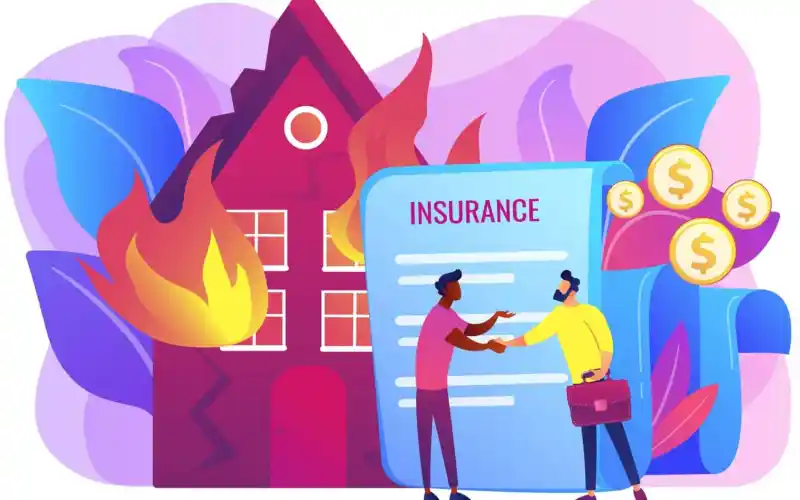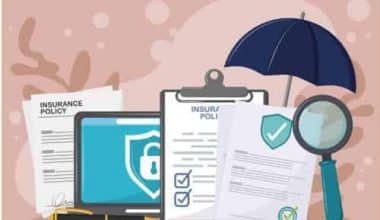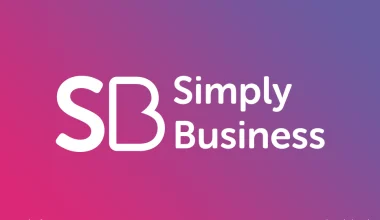Business liability insurance is any type of business insurance that protects against accusations that your business caused damages, injuries, or losses. It protects the financial interests of companies and business owners in the event that they face formal lawsuits or any third-party claims.
Such policies cover any direct financial liabilities incurred, as well as any legal defense expenses.
What is Business Liability Insurance?
Business liability insurance is a type of small business insurance that covers your business for accidental injuries and property damage caused to others. It also covers other problems such as advertising injury, copyright infringement, and reputational harm.
These types of claims may result from your company’s products, services, or operations. Without general liability insurance, you could end up paying out of your business’s income and, in a worst-case scenario, even go bankrupt.
Small business owners put their personal finances at risk in the event of a business-related lawsuit. Partnerships and sole proprietorships are particularly vulnerable to exorbitant expenses and are consequently in the greatest need of this type of insurance coverage. Even under the structure of a limited liability corporation (LLC), an owner may still be exposed to personal risk.
Business liability insurance protects a company’s assets and pays for legal obligations. These can include medical costs incurred by a customer who gets hurt on store property, as well as any on-the-job injuries sustained by employees.
Business liability insurance is sometimes called “general liability insurance” or “commercial general liability insurance.”
Types of Business Liability Insurance
Liability insurance protects businesses from legal claims and financial losses resulting from third-party injuries, property damage, or lawsuits. It covers legal defense costs, settlements, or judgments if the business is found legally liable for causing harm or injury to others.
This type of insurance is crucial for businesses that interact with customers, clients, or the public and helps protect their financial interests in case of accidents, injuries, or property damage claims.
General liability insurance
General liability insurance, also known as business or commercial liability insurance, is essential coverage for various claims, including bodily injury, property damage, personal or advertising injury, medical payments, products-completed operations, and damages to premises rented to you.
Virtually every small business owner or contractor should have some form of general liability insurance. When buying small business insurance and comparing policies, keep in mind that your rates will depend on your business’s specific features.
Business Owners Policy (BOP)
If you want general liability insurance and property coverage, you can package them together in a business owner’s insurance policy, also known as a BOP. A BOP provides liability coverage for customer injury, property damage, and product-related claims, in addition to commercial building and movable property coverage.
Many BOPs also include business interruption coverage, which pays your lost revenues if you close for a covered claim. This coverage type is ideal for owners of small and midsize businesses like restaurants, retail stores, and wholesalers. Keep in mind that BOP insurance doesn’t cover your employees.
Employment Practices Liability Insurance (EPLI)
Small businesses with employees often benefit from employment practices liability insurance. This insurance type protects you if an employee files a claim against you for wrongful discipline or termination, sexual harassment, discrimination, negligent evaluation, breach of employment contract, mismanagement of employee benefits, or wrongful infliction of emotional distress.
Some insurers offer EPLI as stand-alone coverage, whereas others offer it as an endorsement to their BOP. Your policy’s terms and conditions will depend on the coverage you choose. Your business type, number of employees, and various risk factors all play a part in the cost of EPLI.
Professional liability insurance
Professional liability insurance, also known as errors and omissions (E&O) insurance, protects businesses that offer professional services. B2C businesses often use E&O coverage to protect against claims stating their services caused clients financial distress or bodily injury.
Doctors’ malpractice insurance is a common type of professional liability insurance. This insurance type is also essential for professional service providers like consultants and financial advisors. Costs for professional liability insurance will vary depending on the industry and profession. For example, a doctor would likely pay more than a CPA.
Contractors’ professional liability insurance
If your business is in the design-build or construction management industry, you are required to purchase some form of contractors’ professional liability insurance. This coverage protects professionals against construction errors or losses incurred when designing, engineering and constructing a building.
It can also protect you from errors made by third-party vendors associated with a project.
Product liability insurance
Product liability insurance provides more protection and security than a standard product warranty or guarantee. This coverage protects your business if a product causes damage or injury to a third party, or if your business faces a product-related lawsuit.
For example, if your product had a lithium battery that caught on fire, injuring the consumer, they could sue you. Product liability insurance covers you in this instance.
Management liability insurance
Management liability insurance is a combination of coverages used to protect private, public and nonprofit companies from various board-level exposures. It protects against the risks of managing a business and is purchased by organizations with a board of directors.
A typical management liability insurance package includes coverage for employment practices liability, fiduciary liability and D&O liability.
Directors and officers (D&O) liability insurance
If your business has a corporate board of directors or advisory committee, you want D&O insurance. This insurance protects your directors’ and officers’ assets if they are personally sued for wrongful acts in company management (e.g., failure to comply with workplace laws, fraud, theft of intellectual property, misrepresentation of company assets, or misuse of company funds).
What does Business Liability Insurance cover?
Business liability insurance covers a business from a variety of possible claims. These include bodily injury, property damage, copyright infringement, reputational harm, and advertising injury.
- Bodily injury caused by a business is a common claim. For example, if someone comes to your place of business and is injured, a general liability policy would cover their medical costs. A bodily injury claim could be something as simple as a fall by a customer at a store or office.
- Property damage is another common liability claim. Your business may be legally responsible if a person’s property is damaged. Property damage claims could include damage to a client’s home or other property if you are visiting them on business.
- Copyright infringement claims come about if you are accused of using someone else’s work in your business ad or other business marketing without their permission.
- Reputational harm can happen, for example, if you’re being interviewed by a news outlet and you say something negative about another company that hurts their business.
- Advertising injury can happen if your business defames another person, business owner or company.
These types of liability claims are prevalent, so you’ll want to keep your business protected with the right insurance. For example, the average cost of a slip and fall claim is $20,000. And if you face a reputational harm lawsuit, you could be facing $50,000 in costs, according to The Hartford.
A good way to extend your business liability insurance is by purchasing a commercial umbrella insurance policy. This gives you an extra layer of protection from expensive lawsuits.
What types of businesses benefit from Liability Insurance?
The types of businesses that typically buy liability insurance include:
- Artisan contractors
- Consultants
- IT contractors
- Janitorial services
- Landscaping companies
- Marketing firms
- Real estate agents
- Small business owners
What does Business Liability Insurance not cover?
Business liability insurance covers a lot for a business, but it won’t cover business-related auto accidents. This also includes employee injuries and illnesses, damage to your business property, mistakes in professional services, claims that exceed your policy limit, or illegal acts by you or your employees.
For these kinds of problems, you’ll need different types of business insurance, including:
- Employee injuries and illnesses: You need workers’ compensation insurance to provide coverage for employee injuries.
- Auto accidents: For auto accidents while doing business, a commercial auto insurance policy financially protects you if you own the vehicle. A hired or non-owned auto insurance covers a personal car or a rented car for work.
- Professional mistakes. An errors and omissions insurance (E&O) policy provides coverage if you make mistakes in the course of your work. An E&O policy is sometimes called professional liability insurance.
- Theft and damage to your business property. General liability insurance won’t cover your business equipment or property against theft or damage. You need a commercial property insurance policy to cover these types of problems.
Insurance won’t cover intentional acts, such as a computer you throw out the window. And general liability insurance won’t help if there are deliberate, illegal acts or wrongdoings by you or your employees.
Cost of Business Liability Insurance
A business’ perceived risk levels will generally determine its coverage costs. A building contractor who deals with heavy equipment and dangerous machinery, such as cranes and forklifts, for example, will pay more for coverage than an accountant who sits safely behind a desk.
Businesses that fall into the lower-risk category may want to consider a business owner policy (BOP), which combines general liability and property insurance at a more cost-effective rate. Any new or additional business liability insurance policies should contain exclusion clauses to avoid duplication of coverage from competing insurance providers, thereby minimizing costs.
How to get the best Business Liability Insurance
Gather your information and documents
Before you start shopping for a general liability insurance policy, make sure you have all of the necessary information handy:
- Basic contact information.
- Information on what your business does.
- Number of employees and payroll.
- Details about your business location, including if you own or rent the building where your business is located.
- How long you have owned your business.
- Estimated business revenue for the upcoming year.
Consider a Business Owners Policy (BOP)
A general liability insurance policy is foundational coverage for your small business, but it won’t cover problems like theft, vandalism, fire, severe weather and lost income. If you want coverage for these types of issues, you’re going to need to buy additional coverage.
A good way to do this is by purchasing BOP, which bundles general liability insurance with commercial property insurance and business interruption insurance. It’s typically cheaper to buy a BOP than to buy all three policies as standalone policies.
Compare liability insurance quotes
Whether you buy general liability insurance as a standalone policy or as part of a BOP, you’ll want to compare business insurance quotes from several insurance companies. That’s because insurers don’t price their policies the same.
You can get free business insurance quotes online or by speaking with an independent insurance agent.
Business Liability Insurance limits
If you purchase general liability insurance, it’s important to be aware of two types of limits.
- Aggregate limit: This is the maximum amount your insurance company will pay out for all the claims you file during your policy period. If your aggregate limit is $2 million, your insurance company will not pay you more than that amount regardless of the number of claims against you. Most general liability insurance policies have a term of one year, so the aggregate limit would apply for that period.
- Per-occurrence limit: This is the maximum amount that your insurance company will pay out for a single claim. If your per occurrence limit is $1 million, your insurance will cover up to that amount per incident.
Why is Business Liability Insurance important?
Business liability insurance is a type of coverage that provides crucial protection against the high cost of lawsuits. It also helps business owners secure leases and contracts.
Even if a business is not directly responsible, a customer could sue over an accident that happened at your shop or office. For example, if a customer slips on a wet floor at your business and gets injured, you could be held responsible for their medical expenses.
Legal defense costs and medical bills can devastate a business, even if you’re not to blame. That’s why certain types of insurance, particularly general liability insurance coverage, are recommended across all industries – especially those that welcome visitors.
Business liability insurance helps pay for:
- Customer injuries at your shop or office
- Accidental damage to customer property
- Advertising that damages a competitor
- Mistakes that harm a client financially
- Incidents related to alcohol consumption if you serve drinks
Does Business Liability Insurance protect against property damage?
Business liability insurance provides protection when a business is held responsible for another person’s property damages or losses. Commercial property insurance is another type of insurance that protects your business property against theft, fire, vandalism, and other risks.
Most small business owners qualify for a business owner’s policy (BOP), which combines general liability insurance with commercial property insurance at a discount. A BOP can help pay to repair or replace your inventory, equipment, and other business property after damage or loss.
Recommended Articles
- Alabama Car Insurance: Coverage, Cost & Best Options
- Business Insurance For LLC: What It Is & Best Options
- Small Business Insurance: What Is It & How Does It Work?






